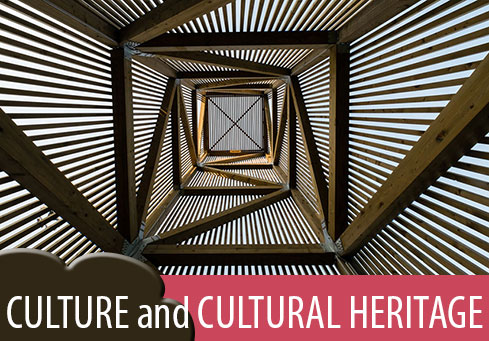Baku Conference – First Platform Exchange on Culture and Digitisation
"Creating an enabling environment for digital culture and for empowering citizens"
4-5 July 2014, Baku, Azerbaijan
The conference took place under the Chairmanship of Azerbaijan Council of Europe June 2014 - November 2014
What is the impact of digitisation on culture? How are public cultural institutions fairing in their transition from the pre-digital to the digital era? And what are the needs of the cultural sector, i.e. its actors, as regards access to, creation and dissemination of cultural content? How can we stimulate cultural participation and overcome the digital divide? How can we empower citizens and create an overall enabling environment for digital culture?
These were the key questions addressed by senior policymakers, cultural practitioners, artists, representatives from International Organisations and researchers participating in the First Council of Europe Platform Exchange on Culture and Digitisation.
The Platform identified five main areas of concern for future work by the Council of Europe:
1. Create awareness of the impact of digitisation on society and culture and the need to overcome the digital/pre-digital divide, underlining the role of culture in achieving this;
2. Scale-up and implement media and information literacy (MIL) inside and outside schools and in life-long learning;
3. Adapt the mission, mandate, mind-set and governance of cultural institutions to be able to exploit the offline and online dynamics;
4. Protect and promote the rights to access, create and distribute cultural content across multiple platforms;
5. Enhance information and monitoring of cultural policies and their implementation related to digitisation.
Guided by the Council of Europe’s principles and values with regard to human rights, democracy and the rule of law, policy guidelines will be developed as from autumn 2014. The process is open and an online platform will be made available for on-going multi-stakeholder consultations.
 Background
Background
Digitisation is shaping the 21st century: not only in terms of new technology, but also in terms of our information environment’s culture, and is having a significant impact on our societies. In this context, the Council of Europe has highlighted the importance of users’ individual and collective needs, the risks for European cultural diversity and the need for adequate conditions for cultural content production and creativity. Future cultural policy will need to tune into the digital world if it is to continue ensuring the widest possible access to and participation in culture and full usage of the opportunities for individual and collective creativity.
 Input papers
Input papers
- "European cultures in the cloud": Mapping the impact of digitisation on the cultural sector by Dr. Divina Frau-Meigs, Sorbonne Nouvelle University
- Possible recommendations for creating an enabling environment for digital culture and for empowering citizens by Dr. Divina Frau-Meigs, Sorbonne Nouvelle University
- Digital shift and a pressure to survive – new audiences, new demands, new business models by Dr. Aleksandra Uzelac, IRMO
- Need for new regulation to enhance creativity in the digital age: the cases of user-generated content and cultural heritage institutions by Leonhard Dobusch, Freie Universität Berlin
- Empowering citizens through media literacy education by Manuel Pinto, University of Minho
- Draft Recommendation of the Committee of Ministers on The Internet of Citizens
- 2nd Council of Europe platform exchange on culture and digitization
 External documents
External documents
- ICOM’s Lisbon Declaration: Support Culture and Museums to Face the Global Crisis and Build the Future
- UNESCO’s Hangzhou Declaration: Placing Culture at the Heart of Sustainable Development Policies
- IFLA 2013 Trend Report: Riding the waves or caught in the tide? Navigating the Evolving Information Environment
- European Commission’s Reflection Group on Bringing Europe’s Cultural Heritage Online: The New Renaissance
- UNESCO’s WSIS+10 Report: Renewing the Knowledge Societies Vision for Peace and Sustainable Development
- United Nations Creative Economy Report 2013 [United Nations Creative Economy Report 2013 Special Edition]
- WAN-IFRA’s 2010 Strategy Report: New revenue models for newspaper companies. The Paid vs. Free Content Debate
- WIPO’s Study on Copyright Limitations and Exceptions for Libraries and Archives
- Digital Single Market: Bringing down barriers to unlock online opportunities
Council of Europe
- Internet Governance Strategy
- 2013 World Forum for Democracy Final Report: Connecting institutions and citizens in the digital age
- 2014 World Forum for Democracy Final Report : "From participation to influence: Can youth revitalise democracy?"
10th Council of Europe Conference of Ministers of Culture
- Final Statement
- Incentives for Discussion
- Summaries of background papers
- "Assessing the impact of digitisation on access to culture and creation, aggregation and curation of content", Background Paper by Divina Frau-Meigs , Professor, Sorbonne Nouvelle University
- "Governance of Culture – Promoting Access to Culture", Background Paper by Elena Di Federico, researcher; Zsuzsa Hunyadi, sociologist; and Péter Inkei, director of the Budapest Observatory



